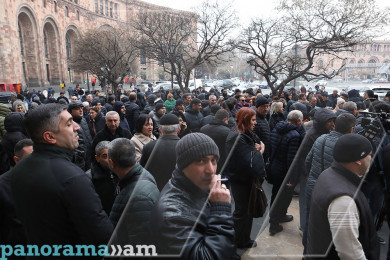
U.S. expert: Azerbaijani authorities try to monopolize religion under pretext of ‘‘national Islam’’
"The Azerbaijani authorities implement policy of forming "national Islam” against the background of increasing external pressure," the employee of Washington Carnegie Center for Global Studies Bayram Balji stated in his speech at Washington's Woodrow Wilson Center.
According to the newspaper "Azadlyg", the analyst stated that it would be better for the official Baku to withdraw Islamists from the influence of Iran and Turkey. According to Balji, it is a complex issue, as it will not be easy to tear the faithful from foreign religious leaders in the country, where the majority of population adheres to Shiism.
"The state is going to monopolize religion under the pretext of national Islam. But the religion requires freedom ... If the local religious schools do not provide with a high-quality education, the religious people will have to go and get it abroad. This is natural," the expert told in an interview given to the Azerbaijani Service of BBC.
According to Balji, recently poverty, political repression and suppression of freedoms have become one of the main causes of religious radicalism in Azerbaijan. If before, while talking about the radicals, they were meaning the minorities who used to come from the North Caucasus, now the radicals who voice political demands can be found in all parts of the country.
"Part of the radicals has chosen this path because of the radicalization of the religious policy of the country", the expert says, and notes that they do not need to be afraid of the religious people, they should give them freedom in order to weaken them.
According to the expert, Azerbaijan is under the religious influence from three sides: Iran (Shiites), Turkey (Sunni) and Arab countries (the Salafis). After the collapse of the Soviet Union, the local population was in search of faith. On one side was Iran, where Shiism had become a state religion, on the other side was Sunni-Turkey.
"When I was in Iran, I met 200-250 Azerbaijanis in religious schools. I do not think they have an impact on the population of Azerbaijan, as their relationship with their homeland was lost after moving to Iran... Neverthless, the Iranian ayatollahs-Azerbaijanis, without a doubt, have a serious impact in the neighboring country," says Balji.
At the official level the Ministry of Religious Affairs of Turkey and at unofficial level the gyulenists (followers of Fethullah Gulen) try to spread their influence in Azerbaijan and create pro-Turkish religious elite. According to experts, despite the fact that the political establishment in Baku is closer to Turkey than to Iran, in reality, it is superior to two countries on the level of good manners.
Newsfeed
Videos






























